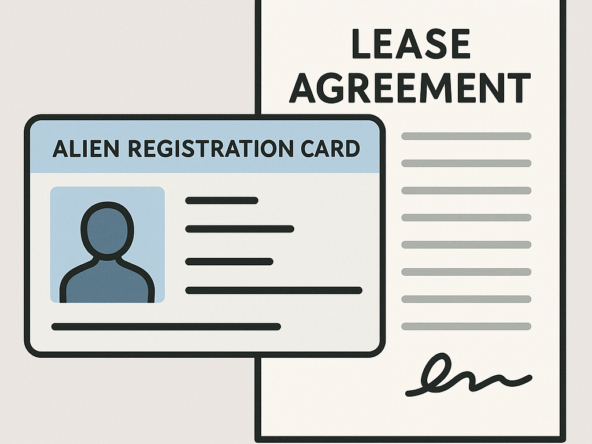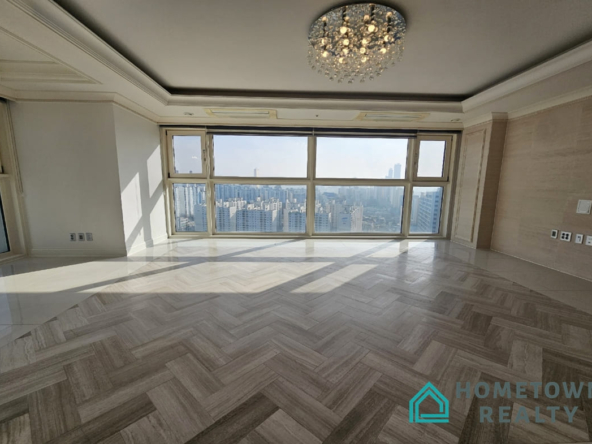Introduction
South Korea, a vibrant and diverse nation, welcomes individuals from around the world for various purposes, including work, education, family reunions, and tourism. To cater to this wide range of needs, South Korea offers a variety of visa types. Usually we introduce you to various apartment types in Korea but in this article, we’ll explore the most common South Korea visa options available to those planning to live in this beautiful country.
- Tourist Visa (C-3)
The C-3 tourist visa is ideal for individuals looking to explore South Korea for a short period, whether for tourism or visiting friends and family. With a typical allowance of up to 90 days, it’s the perfect choice for travelers eager to immerse themselves in the country’s rich culture, historical sites, and breathtaking natural landscapes. Many visitors in search of temporary accommodations, such as Airbnb, hotels, or short-term apartments in Seoul, often opt for this visa.
- Work Visa (E-series)
South Korea provides a range of work visas under the E-series, each tailored to specific professions and roles. Noteworthy work visas include:
E-1 (Professor): Designed for those engaged in teaching or research at universities or research institutions.
E-2 (English Teacher): Tailored for native English speakers working as teachers in schools or language institutes.
E-3 to E-7: Covering a diverse spectrum of professions, such as researchers, technical experts, professionals, and skilled workers. The specific visa granted depends on the nature of the job. Work visas usually require sponsorship from the employer, and the duration varies based on the employment contract.
- Student Visa (D-series)
South Korea’s D-series student visas are crafted for international students, with the most common types being:
D-2 (Regular Student): Suited for individuals pursuing degree programs at South Korean educational institutions.
D-4 (Language Student): Perfect for those learning the Korean language at language institutes. The visa duration typically aligns with the academic program’s length, and sponsorship is provided by the educational institution.
Because students coming to Korea are mostly staying here for 1 – 2 semesters, it is normal for them to find short-term, furnished apartments.
- Working Holiday Visa (H-1)
Working holiday visas are available to citizens of countries with bilateral agreements with South Korea. These visas allow young adults to experience a unique blend of work and travel within South Korea for up to a year. When considering accommodation, many opt for long-term contracts rather than short-term apartments.
- Spousal Visa (F-series)
South Korea extends spousal visas to individuals with family ties to South Korean citizens. These visas encompass:
F-2 (Family Reunion): Designed for the spouses of South Korean citizens.
F-6 (Marriage Migrant): Intended for individuals married to South Korean citizens. The visa duration can vary based on the specific F-series visa and individual circumstances.
- Investor Visa (D-8)
For those seeking to invest in a South Korean business, the D-8 investor visa is a viable option. The visa’s duration typically aligns with the investment period and requires a substantial financial commitment.
- Retirement Visa
South Korea offers a retirement visa for individuals aged 55 and above with the financial means to support themselves during their stay. These visas are usually granted for one year, renewable upon meeting certain criteria.
- Visa for Religious Activities (D-6)
The D-6 visa is specially crafted for religious workers, including missionaries and clergy, engaged in religious activities within South Korea.
- Entertainment Visa (D-1)
The D-1 visa is tailored for individuals involved in the entertainment industry, such as actors, singers, and performers. It is typically issued for the duration of their entertainment contracts.
- Visa for Family Reunion
This visa type is reserved for immediate family members (spouse, children, parents) of South Korean citizens and comes with varying durations based on the family relationship.
In Conclusion
South Korea’s wide array of visa options underscores its commitment to accommodating individuals from diverse backgrounds. Whether your goal is to explore cultural treasures, further your education, pursue a career, reunite with family, or invest, there’s a suitable visa type for your needs. It’s imperative to stay informed about specific requirements and documentation for each visa, as regulations may evolve over time. Always seek guidance from the South Korean embassy or consulate in your home country for the most up-to-date information and application procedures. This ensures a smooth transition to life in South Korea, making the most of your journey.




